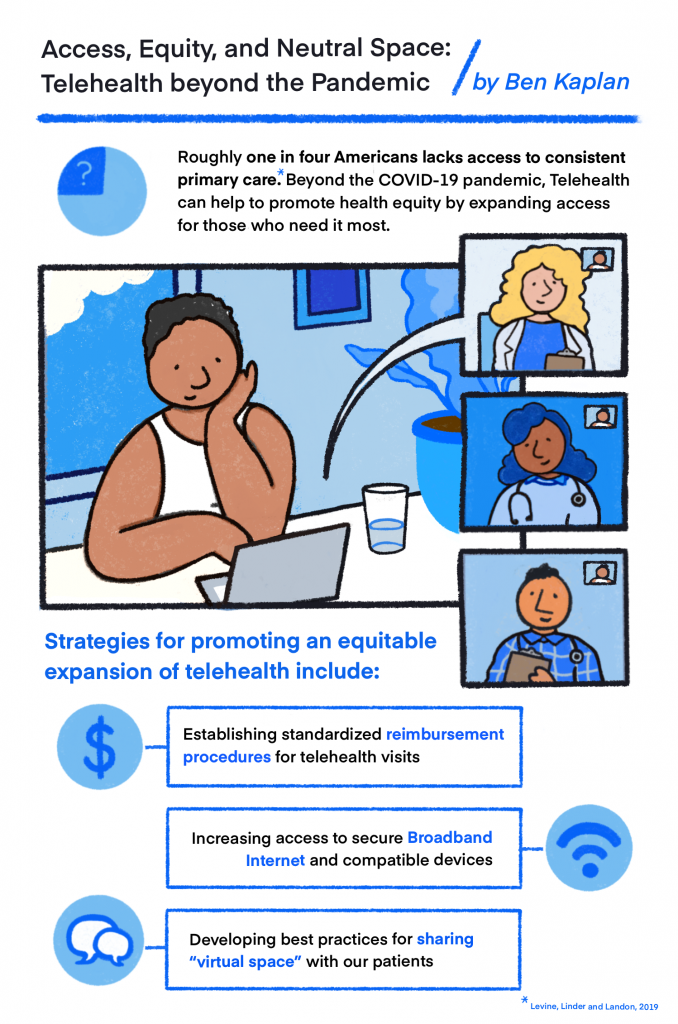Ben Kaplan, MPH, recently published a paper in the Annals of Family Medicine titled “Access, Equity, and Neutral Space: Telehealth Beyond the Pandemic.” In the essay, Kaplan describes what he calls his most formative experiences with telehealth: participating in UNC School of Medicine’s new “tele-hotspotting” elective and providing virtual gender-affirming care through the student-run free clinic. He examines the barriers involved in providing virtual care, while also highlighting the potential for telehealth as “a crucial resource for some of our most marginalized patients long after this national state of emergency has resolved.”

As Kaplan notes, the COVID-19 pandemic has underscored our healthcare system’s vast racial, financial, and other socioeconomic disparities in access to care. Telehealth has allowed many physicians to connect with patients who previously struggled to access consistent primary care. Despite the opportunities telehealth presents for providing care in a time when in-person visits may not be feasible, virtual care is not without its challenges.
“It is important to acknowledge telehealth’s clinical limitations,” Kaplan says, “as well as challenges like inconsistent availability of broadband internet and a lack of standardized reimbursement procedures for telehealth visits.”
However, Kaplan remains optimistic about the potential for telehealth to expand primary care offerings and health equity beyond the pandemic. “If we are intentional about engaging these challenges while centering health equity, telehealth may continue to be a valuable tool for expanding access to health care in the coming years.”
Kaplan is a fourth-year medical student at UNC. Following his residency training, he intends to practice full-spectrum family medicine as part of an interdisciplinary health care team.
You can read his full essay here.
